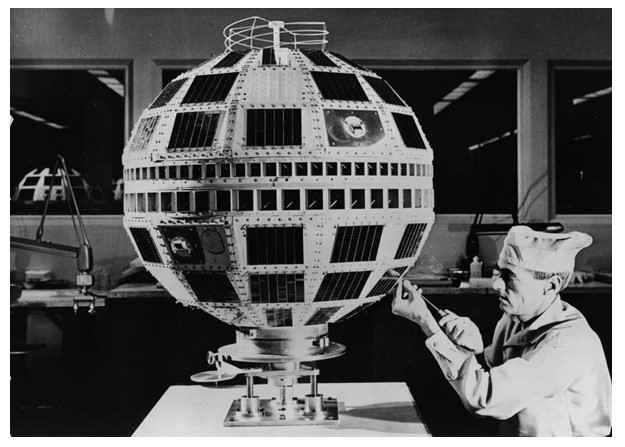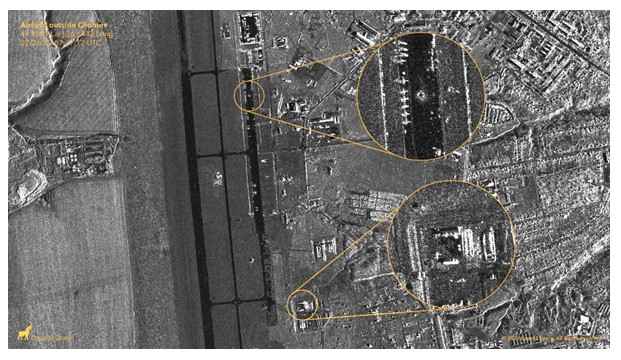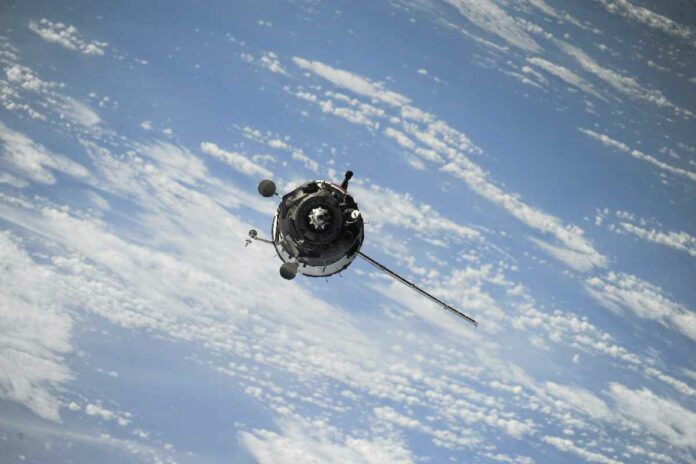While some are still trying to argue whether we do or do not need private space companies, commercial space is already playing a critical role in our daily lives.
Communications, banking, stock market data, weather, and navigation systems all rely on the private space sector. Even national security also counts on private space technology.
When Russia invaded some of the Ukrainian regions and started a full-scale war, many private space firms chose their side and “entered” the informational battlefield too.
Ukrainian space entrepreneur and investor Max Polyakov from Noosphere Ventures was among those who played a vital role in supplying Ukraine with space technologies, along with firms such as SpaceX, Maxar, and Planet.
So, let’s figure out why commercial space is now so critical and how the war in Ukraine proves it.
Table of Contents
The governments lost exclusive rights to use space
Early space exploration was the exclusive province of governments. The Cold War era significantly boosted the development of space technology. All major space innovations and key achievements stem from that period.
At that time, space exploration was characterised mainly by military activity. Only the military could access space and satellite technologies. Today’s new space race revolves around the private sector’s space exploration effort, with people like Max Polyakov, Elon Musk, Peter Beck, and other space entrepreneurs seeing immense value in studying space.
Government agencies worldwide outsource projects to the private sector when space-based capabilities become more crucial for the economy. For national security, space remains critical. Space systems are now playing a role in everything from communications and collecting intelligence data to weapon targeting.
Moreover, space technology is widely used today to control military personnel, conduct combat operations, and monitor possible threats.
National security now encompasses all types of space systems: private and civil, classified and unclassified.
Commercial space is becoming vital
Commercial space services are inseparable from the modern way of life. The Telstar 1 satellite that reached orbit in 1962 and broadcasted television signals from the US to Europe marked the first ever use case of space for commercial purposes.

After that, the number of launches by non-government companies started to grow, and the private rocket business appeared. In 2010, commercial launches made up 31 percent of all launches. We reached a significant milestone in 2020 when a private company sent people into orbit.
The appearance of new players decreased the cost per launch and boosted the rocket development movement towards a reusable approach. Over two decades, a new model in which public attempts in space share the spotlight with commercial goals more often has replaced the 1960s-era model of centralized, government-directed human space activity.
The public interest, such as national security and basic science, will always be the priority of state-owned space initiatives. This approach makes sense, given that these programs must show evidence of their positive effects on taxpayers.
The commercial sector, as opposed to the state, is keen to send people into space for them to pursue their interests and then fulfill the demand they generate, such as building a settlement on Moon or Mars and providing logistics services there.
Over the past 20 years, the national security and military forces’ bandwidth requirements have expanded significantly. But the state machine isn’t always capable of keeping up with the demand.
To meet the requirements, countries now depend on private satellite providers for 80% of their total capacity. In addition, multiple sources claim that up to 96% of satellite communications for the military in combat zones like Iraq and Afghanistan are provided to the US by non-government satellites.
Commercial space companies support Ukraine
Months before Russian invaded Ukraine, business-oriented imaging companies started to raise the alarm. Satellite images illustrated thousands of Russian troops were concentrating near the Ukrainian border, which predicted the escalation of the conflict.
When Putin’s troops attacked Ukraine, satellite companies such as Planet Labs and Maxar continued to record every move they made.
Such cooperation was partially possible due to private sector mobility. While politicians were discussing the situation and preparing careful speeches in their offices, private space firms had already made their move.
Elon Musk and his Starlink company made another game-changing move. The company cooperated with Ukrainian and American leaders and delivered Starlink terminals to Ukraine. This move allowed soldiers, commanders, and local mayors to keep in touch when Russians destroyed telecom towers or intentionally jammed the signals.
All these prove that we are now, as Bloomberg called it, amid the first real space war in which corporate space actors impact the situation on the ground.
Max Polyakov contributed to the Ukrainian satellite access
Being involved in the space industry long before the war, Max Polyakov knew the power of using space technology for Ukrainian resistance. That is why during the first weeks of the full-scale war, Dr. Polyakov requested international companies with access to space images to share the data with Ukrainian intelligence and military services.
As a result, the world also found out about the military crimes committed by the Russian army. Satellite images could prove the destruction of hospitals, schools, and residential buildings and then discover mass graves on occupied territories. This approach turned the flow of the by making the truth evident.
The spacecraft orbiting our planet far away in space photographed and sent the evidence to us.

But this was not enough for the defense services. To monitor the situation more quickly and plan the counteroffensive, Ukraine needed its own eyes in space. Acknowledging its importance, Max Polyakov played his role in a historical purchase of a SAR satellite for crowdfunded money.
Perhaps, it was the first time in history that thousands of people donated and purchased a satellite! So far, the details of the deal and the early results are kept secret for security reasons. But the numerous hints from the Ukrainian Minister of Defense make us believe it is more than effective and helped to save many lives.
In a nutshell
National defense departments increasingly rely on commercial players, and reliance will likely keep stretching. The Ukrainian case proved that private players are more flexible when it comes to space services.
Satellite images, communications, and earth observation are now a prerogative of the individuals whose hands are (almost) free from reporting to taxpayers or asking the authorities for permission.
Still, there’s a place for cooperation between state defense and businesses. The Ukrainian case proves that business people, such as Max Polyakov, the government, and private space, can collaborate to achieve lofty goals, including peace and freedom.
Decades after the first space race and governmental monopoly on space, we are now at the edge of a new space era when the boundaries between life on Earth and other celestial bodies have almost vanished.














